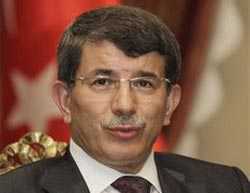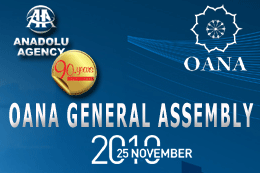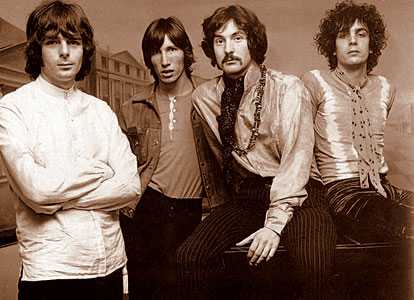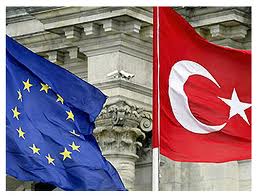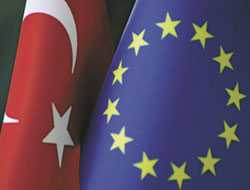By Scott Stewart | November 24, 2010
Over the past few weeks, aviation security — specifically, enhanced passenger-screening procedures — has become a big issue in the media. The discussion of the topic has become even more fervent as we enter Thanksgiving weekend, which is historically one of the busiest travel periods of the year. As this discussion has progressed, we have been asked repeatedly by readers and members of the press for our opinion on the matter.
We have answered such requests from readers, and we have done a number of media interviews, but we’ve resisted writing a fresh analysis on aviation security because, as an organization, our objective is to lead the media rather than follow the media regarding a particular topic. We want our readers to be aware of things before they become pressing public issues, and when it comes to aviation-security threats and the issues involved with passenger screening, we believe we have accomplished this. Many of the things now being discussed in the media are things we’ve written about for years.
When we were discussing this topic internally and debating whether to write about it, we decided that since we have added so many new readers over the past few years, it might be of interest to our expanding readership to put together an analysis that reviews the material we’ve published and that helps to place the current discussion into the proper context. We hope our longtime readers will excuse the repetition.
We believe that this review will help establish that there is a legitimate threat to aviation, that there are significant challenges in trying to secure aircraft from every conceivable threat, and that the response of aviation security authorities to threats has often been slow and reactive rather than thoughtful and proactive.
Threats
Commercial aviation has been threatened by terrorism for decades now. From the first hijackings and bombings in the late 1960s to last month’s attempt against the UPS and FedEx cargo aircraft, the threat has remained constant. As we have discussed for many years, jihadists have long had a fixation with attacking aircraft. When security measures were put in place to protect against Bojinka-style attacks in the 1990s — attacks that involved modular explosive devices smuggled onto planes and left aboard — the jihadists adapted and conducted 9/11-style attacks. When security measures were put in place to counter 9/11-style attacks, the jihadists quickly responded by going to onboard suicide attacks with explosive devices concealed in shoes. When that tactic was discovered and shoes began to be screened, they switched to devices containing camouflaged liquid explosives. When that plot failed and security measures were altered to restrict the quantity of liquids that people could take aboard aircraft, we saw the jihadists alter the paradigm once more and attempt the underwear-bomb attack last Christmas.
In a special edition of Inspire magazine released last weekend, al Qaeda in the Arabian Peninsula (AQAP) noted that, due to the increased passenger screening implemented after the Christmas Day 2009 attempt, the group’s operational planners decided to employ explosive devices sent via air cargo (we have written specifically about the vulnerability of air cargo to terrorist attacks).
Finally, it is also important to understand that the threat does not emanate just from jihadists like al Qaeda and its regional franchises. Over the past several decades, aircraft have been attacked by a number of different actors, including North Korean intelligence officers, Sikh, Palestinian and Hezbollah militants and mentally disturbed individuals like the Unabomber, among others.
Realities
While understanding that the threat is very real, it is also critical to recognize that there is no such thing as absolute, foolproof security. This applies to ground-based facilities as well as aircraft. If security procedures and checks have not been able to keep contraband out of high-security prisons, it is unreasonable to expect them to be able to keep unauthorized items off aircraft, where (thankfully) security checks of crew and passengers are far less invasive than they are for prisoners. As long as people, luggage and cargo are allowed aboard aircraft, and as long as people on the ground crew and the flight crew have access to aircraft, aircraft will remain vulnerable to a number of internal and external threats.
This reality is accented by the sheer number of passengers that must be screened and number of aircraft that must be secured. According to figures supplied by the Transportation Security Administration (TSA), in 2006, the last year for which numbers are available, the agency screened 708,400,522 passengers on domestic flights and international flights coming into the United States. This averages out to over 1.9 million passengers per day.
Another reality is that, as mentioned above, jihadists and other people who seek to attack aircraft have proven to be quite resourceful and adaptive. They carefully study security measures, identify vulnerabilities and then seek to exploit them. Indeed, last September, when we analyzed the innovative designs of the explosive devices employed by AQAP, we called attention to the threat they posed to aviation more than three months before the Christmas 2009 bombing attempt. As we look at the issue again, it is not hard to see, as we pointed out then, how their innovative efforts to camouflage explosives in everyday items and hide them inside suicide operatives’ bodies will continue and how these efforts will be intended to exploit vulnerabilities in current screening systems.
As we wrote in September 2009, getting a completed explosive device or its components by security and onto an aircraft is a significant challenge, but it is possible for a resourceful bombmaker to devise ways to overcome that challenge. The latest issue of Inspire magazine demonstrated how AQAP has done some very detailed research to identify screening vulnerabilities. As the group noted in the magazine: “The British government said that if a toner weighs more than 500 grams it won’t be allowed on board a plane. Who is the genius who came up with this suggestion? Do you think that we have nothing to send but printers?”
AQAP also noted in the magazine that it is working to identify innocuous substances like toner ink that, when X-rayed, will appear similar to explosive compounds like PETN, since such innocuous substances will be ignored by screeners. With many countries now banning cargo from Yemen, it will be harder to send those other items in cargo from Sanaa, but the group has shown itself to be flexible, with the underwear-bomb operative beginning his trip to Detroit out of Nigeria rather than Yemen. In the special edition of Inspire, AQAP also specifically threatened to work with allies to launch future attacks from other locations.
Drug couriers have been transporting narcotics hidden inside their bodies aboard aircraft for decades, and prisoners frequently hide drugs, weapons and even cell phones inside body cavities. It is therefore only a matter of time before this same tactic is used to smuggle plastic explosives or even an entire non-metallic explosive device onto an aircraft — something that would allow an attacker to bypass metal detectors and backscatter X-ray inspection and pass through external pat-downs.
Look for the Bomber, Not Just the Bomb
This ability to camouflage explosives in a variety of different ways, or hide them inside the bodies of suicide operatives, means that the most significant weakness of any suicide-attack plan is the operative assigned to conduct the attack. Even in a plot to attack 10 or 12 aircraft, a group would need to manufacture only about 12 pounds of high explosives — about what is required for a single, small suicide device and far less than is required for a vehicle-borne improvised explosive device. Because of this, the operatives are more of a limiting factor than the explosives themselves; it is far more difficult to find and train 10 or 12 suicide bombers than it is to produce 10 or 12 devices.
A successful attack requires operatives who are not only dedicated enough to initiate a suicide device without getting cold feet; they must also possess the nerve to calmly proceed through airport security checkpoints without alerting officers that they are up to something sinister. This set of tradecraft skills is referred to as demeanor, and while remaining calm under pressure and behaving normally may sound simple in theory, practicing good demeanor under the extreme pressure of a suicide operation is very difficult. Demeanor has proved to be the Achilles’ heel of several terror plots, and it is not something that militant groups have spent a great deal of time teaching their operatives. Because of this, it is frequently easier to spot demeanor mistakes than it is to find well-hidden explosives. Such demeanor mistakes can also be accentuated, or even induced, by contact with security personnel in the form of interviews, or even by unexpected changes in security protocols that alter the security environment a potential attacker is anticipating and has planned for.
There has been much discussion of profiling, but the difficulty of creating a reliable and accurate physical profile of a jihadist, and the adaptability and ingenuity of the jihadist planners, means that any attempt at profiling based only on race, ethnicity or religion is doomed to fail. In fact, profiling can prove counterproductive to good security by blinding people to real threats. They will dismiss potential malefactors who do not fit the specific profile they have been provided.
In an environment where the potential threat is hard to identify, it is doubly important to profile individuals based on their behavior rather than their ethnicity or nationality — what we refer to as focusing on the “how” instead of the “who.” Instead of relying on physical profiles, which allow attack planners to select operatives who do not match the profiles being selected for more intensive screening, security personnel should be encouraged to exercise their intelligence, intuition and common sense. A Caucasian U.S. citizen who shows up at the U.S. Embassy in Nairobi or Dhaka claiming to have lost his passport may be far more dangerous than some random Pakistani or Yemeni citizen, even though the American does not appear to fit the profile for requiring extra security checks.
However, when we begin to consider traits such as intelligence, intuition and common sense, one of the other realities that must be faced with aviation security is that, quite simply, it is not an area where the airlines or governments have allocated the funding required to hire the best personnel. Airport screeners make far less than FBI special agents or CIA case officers and receive just a fraction of the training. Before 9/11, most airports in the United States relied on contract security guards to conduct screening duties. After 9/11, many of these same officers went from working for companies like Wackenhut to being TSA employees. There was no real effort made to increase the quality of screening personnel by offering much higher salaries to recruit a higher caliber of candidate.
There is frequent mention of the need to make U.S. airport security more like that employed in Israel. Aside from the constitutional and cultural factors that would prevent American airport screeners from ever treating Muslim travelers the way they are treated by El Al, another huge difference is simply the amount of money spent on salaries and training for screeners and other security personnel. El Al is also aided by the fact that it has a very small fleet of aircraft that fly only a small number of passengers to a handful of destinations.
Additionally, airport screening duty is simply not glamorous work. Officers are required to work long shifts conducting monotonous checks and are in near constant contact with a traveling public that can at times become quite surly when screeners follow policies established by bureaucrats at much higher pay grades. Granted, there are TSA officers who abuse their authority and do not exhibit good interpersonal skills, but anyone who travels regularly has also witnessed fellow travelers acting like idiots.
While it is impossible to keep all contraband off aircraft, efforts to improve technical methods and procedures to locate weapons and IED components must continue. However, these efforts must not only be reacting to past attacks and attempts but should also be looking forward to thwart future attacks that involve a shift in the terrorist paradigm. At the same time, the often-overlooked human elements of airport security, including situational awareness, observation and intuition, need to be emphasized now more than ever. It is those soft skills that hold the real key to looking for the bomber and not just the bomb.
Read more: Aviation Security Threats and Realities | STRATFOR
